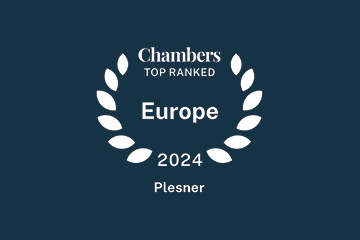Contractor's waiver of minimum requirement contrary to the procurement rules
The Danish Complaints Board for Public Procurement established in a decision of 19 May 2020 that the contracting entity's waiver of a minimum requirement following the award of a framework agreement constituted a substantial modification contrary to the public procurement rules. As a consequence, the Complaints Board declared the modified framework agreements ineffective and at the same time imposed a financial penalty of DKK 3m on the contracting entity.
Brief summary of the case
In August 2018, FynBus, Sydtrafik & Midttrafik (the "Transport Operators") launched a procedure under the Directive coordinating the procurement procedures of entities operating in the water, energy, transport and postal services sectors for the award of a number of framework agreements concerning the performance of "Flextrafik" (flexible transport), ie transport comprising flexible tours, flexible bus services/dial-up taxi rides, dial-up transport, seated patient transport, individual disabled travel and travel subject to municipal referral and assessment.
According to the specifications it was a minimum requirement that car types 5 and 6 must be able to accommodate at least two wheelchairs.
When the deadline for the submission of bids expired, the Transport Operators had received tenders from 286 tenderers, including Alsvognen I/S ("Alsvognen"). Alsvognen submitted tenders for six cars, one of which complied with the requirements for car type 5, and one of which complied with the requirements for car type 6. According to the information received, the Transport Operators concluded 110 framework agreements for car types 5 and 6, including with Alsvognen.
Following the entry into force of the framework agreements on 1 March 2019, it became clear to Alsvognen that it was not awarded contracts for car types 5 and 6 to the expected extent, and that the contracts were at the same time awarded to suppliers whose cars did not comply with the minimum requirement.
In August 2019, the Transport Operators confirmed to Alsvognen that some suppliers were using cars that did not comply with the minimum requirement that they must be able to accommodate two wheelchairs but that it had been decided to waive this condition. The reason for this was that otherwise the majority of the tours with car types 5 and 6 would have to be suspended, and the Transport Operators would not be able to fulfil their service obligation.
Alsvognen subsequently filed a complaint with the Danish Public Contracts Appeals Board, claiming that the Transport Operators had acted contrary to Article 89(4) of the Directive coordinating the procurement procedures of entities operating in the water, energy, transport and postal services sectors by waiving the minimum requirement as it was a fundamental element. Alsvognen further claimed that the framework agreements be declared ineffective.
The decision made by the Danish Public Contracts Appeals Board
The Public Contracts Appeals Board found that the Transport Operators' waiver of a minimum requirement that cars must be able to accommodate at least two wheelchairs was a substantial modification of the framework agreement contrary to Article 89(4) of the Directive coordinating the procurement procedures of entities operating in the water, energy, transport and postal services sectors. The Appeals Board stated that according to the information received compliance with the minimum requirement entailed extra costs for tenderers in connection with the procurement and operation of cars that complied with the conditions and were therefore less able to compete compared with tenderers who did not comply with the requirement. The Public Contract Appeal Board further stated that the minimum requirements must be considered likely to prevent potential tenderers from submitting tenders with respect to the framework agreement.
The Appeals Board declared that the modified framework agreements were ineffective as at 1 August 2020, see section 17(1)(i) of the Danish Act on the Danish Public Contracts Appeals Board, and at the same time imposed a financial penalty of DKK 3m on the Transport Operators, see section 18(2)(iii) of the Act. In its determination of the financial penalty the Appeals Board used as it starting point the estimated value of the framework agreement during the period from 16 August 2019 to 1 August 2020, ie from the Transport Operator notified Alsvognen that it had waived the minimum requirement compared with the value during its ordinary term. However, the Appeals Board rounded the amount down in view of the Traffic Operators' information about a decline in activities during the corona crisis.
It is noted that the Appeals Board considered whether there was any basis for not declaring the framework agreement ineffective under section 17(3) of the Act. According to this provision, a contract or a framework agreement which is to be found ineffective under section 17(1) may nevertheless be upheld if it is necessary that it continues to have effect due to material public interest considerations. The Appeals Board found that this was not the case. The fact that the cars complying with the minimum requirements could not fulfil the Traffic Operators' general requirement for transport of wheelchair users for whom it would thus become more difficult to be transported for treatment was not sufficient to justify upholding the framework agreements.
Plesner's comments
The decision emphasises that it is not possible for a contracting entity to waive a minimum requirement laid down in connection with the call for tenders following the award of a contract. This will amount to a substantial modification of the contract that cannot be made without conducting a new procurement procedure. The decision thus also emphasises that it is not only a contractual issue between the contracting entity and the successful tenderer whether the latter fulfils the minimum requirements during the term of the contract.
Read the decision made by the Danish Public Contracts Appeals Board (in Danish) here






